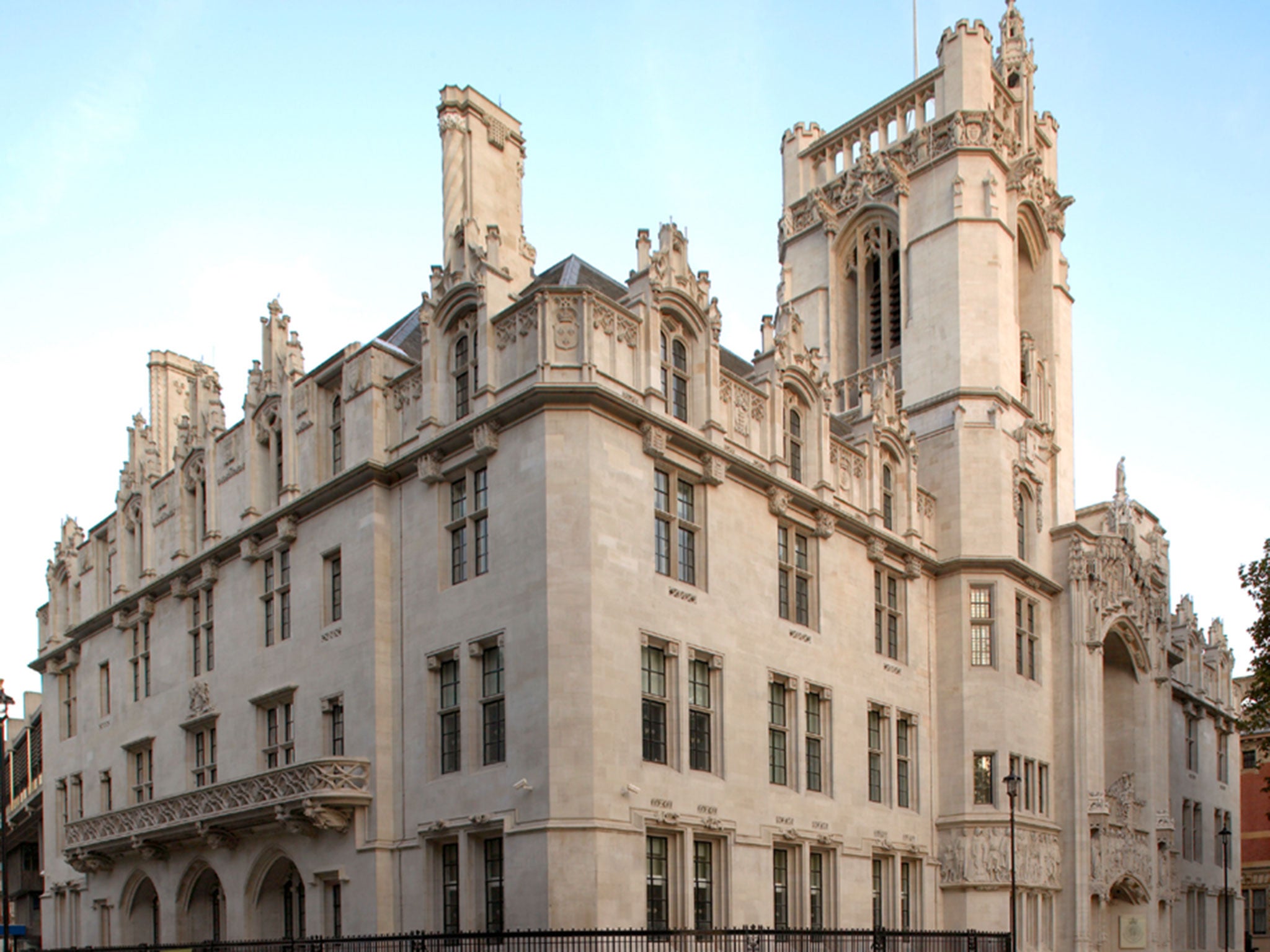Brexit: Fresh blow for Theresa May as Supreme Court rules Scotland and Wales can intervene in Article 50 triggering
Edinburgh and Cardiff will be allowed to argue for the right to have a say over the triggering of the Article 50 notice period

Your support helps us to tell the story
From reproductive rights to climate change to Big Tech, The Independent is on the ground when the story is developing. Whether it's investigating the financials of Elon Musk's pro-Trump PAC or producing our latest documentary, 'The A Word', which shines a light on the American women fighting for reproductive rights, we know how important it is to parse out the facts from the messaging.
At such a critical moment in US history, we need reporters on the ground. Your donation allows us to keep sending journalists to speak to both sides of the story.
The Independent is trusted by Americans across the entire political spectrum. And unlike many other quality news outlets, we choose not to lock Americans out of our reporting and analysis with paywalls. We believe quality journalism should be available to everyone, paid for by those who can afford it.
Your support makes all the difference.The Supreme Court today threw a further hurdle in the way of Theresa May’s hopes of a smooth Brexit, when it ruled the Scottish and Welsh governments can intervene.
Edinburgh and Cardiff will be allowed to make their separate cases to the court for the right to have a say over the triggering of the Article 50 notice period.
The decision raises the possibility – albeit thought to be slim – of the Supreme Court agreeing with the SNP that the Scottish Parliament should have a veto over the Brexit strategy.
That would plunge the United Kingdom into a full-blown constitutional crisis, as well as potentially sink the Prime Minister’s exit timetable.
The decision is a big victory for Nicola Sturgeon, the SNP’s first minister, who has insisted Scotland’s voice must be heard after the country voted decisively to Remain.
The Government's appeal against the High Court ruling that MPs must give their consent to the invoking of Article 50 will be heard, over four days, from December 5.
The decision is expected at the start of January, after which – if it loses – the Government will introduce a short three-line Bill to try to keep Brexit on track.
Ms May has said she will trigger Article 50 by the end of March, beginning two years of formal exit talks expected to conclude with Britain leaving the EU in spring 2019.
Now counsel for the Scottish Government will be allowed to argue that Brexit, as planned by Ms May, is likely to have a decisive impact on the devolution settlement and the law in Scotland.
Join our commenting forum
Join thought-provoking conversations, follow other Independent readers and see their replies
0Comments